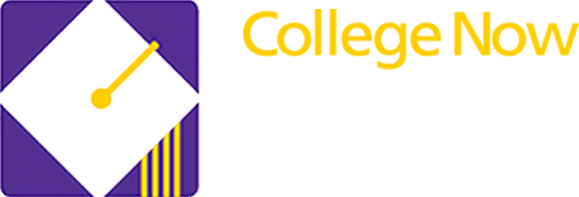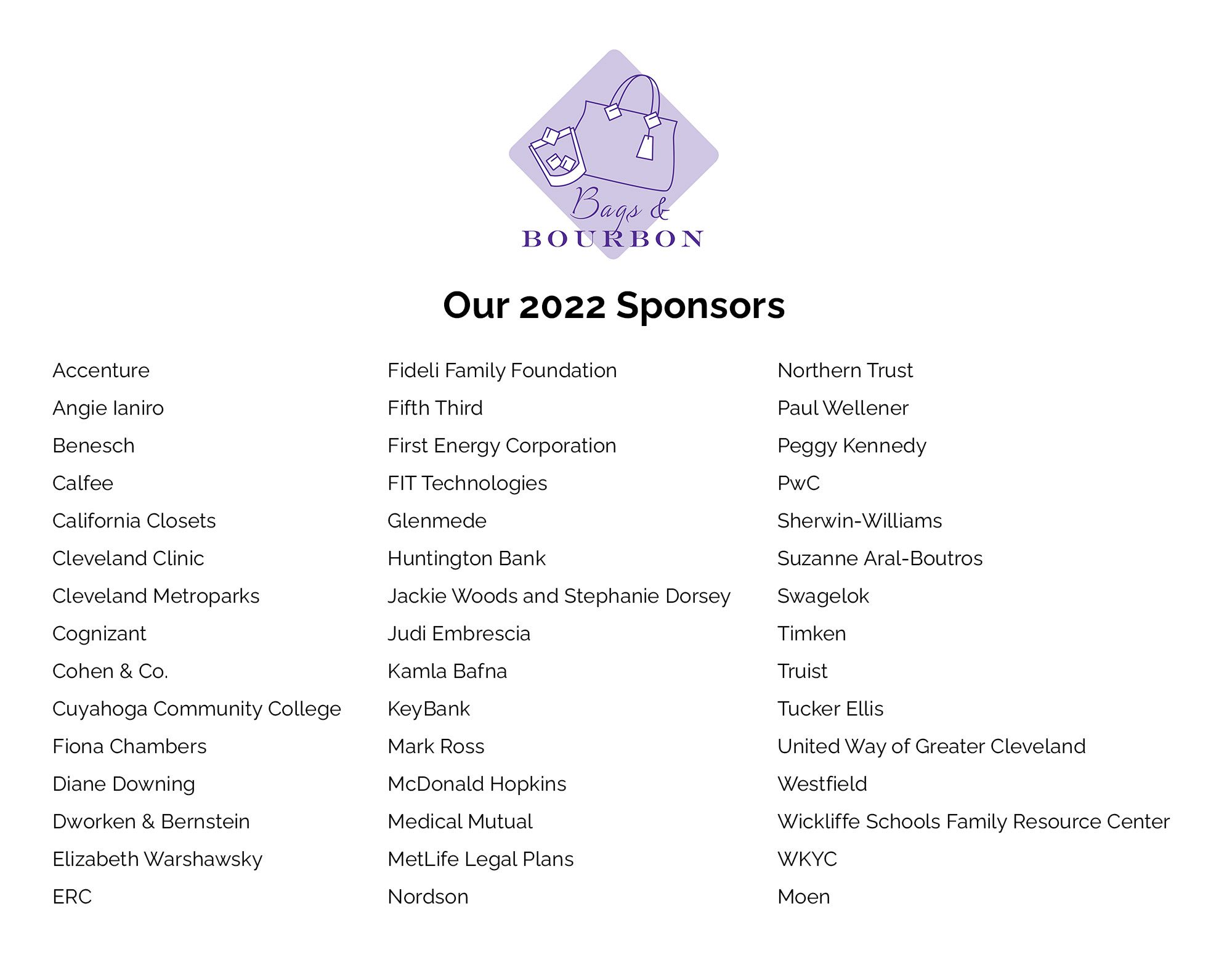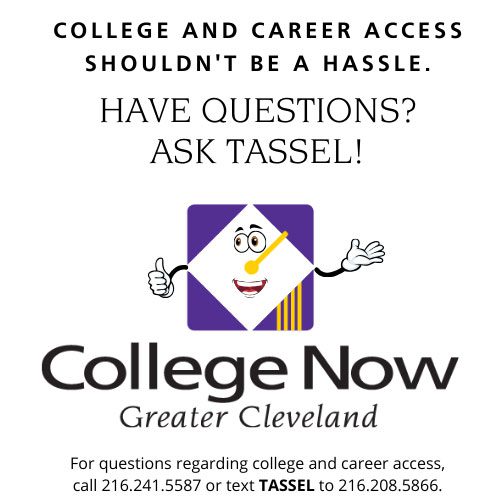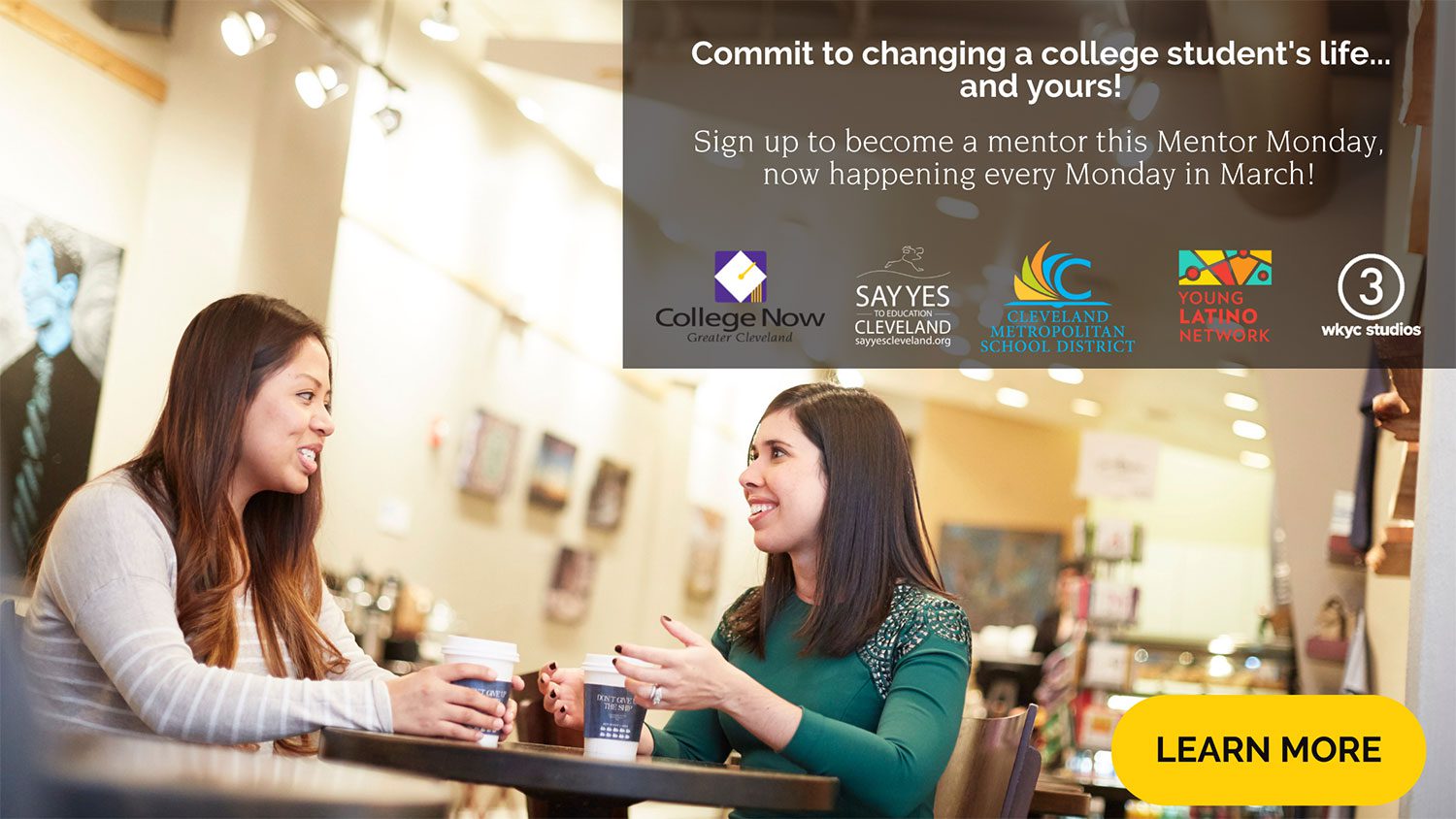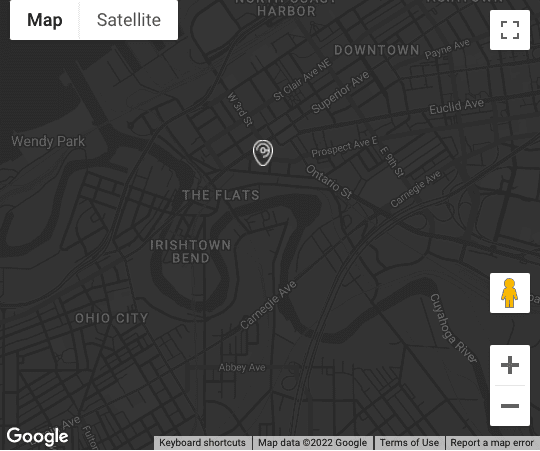A hallmark of being a College Now scholarship recipient is being matched a mentor who will help guide students for four years, starting with their transition to college and through the next four years to graduation. The mentoring program is proven to have a 70% graduation rate for mentored students which is nearly double the national average. Unique Willis-Norris opened up about her experience previously as a College Now scholarship recipient and mentee and how that has prepared her for becoming a mentor at College Now Greater Cleveland. She emphasized the importance of representation while advising younger people and showing them that the possibilities with a postsecondary education are endless.
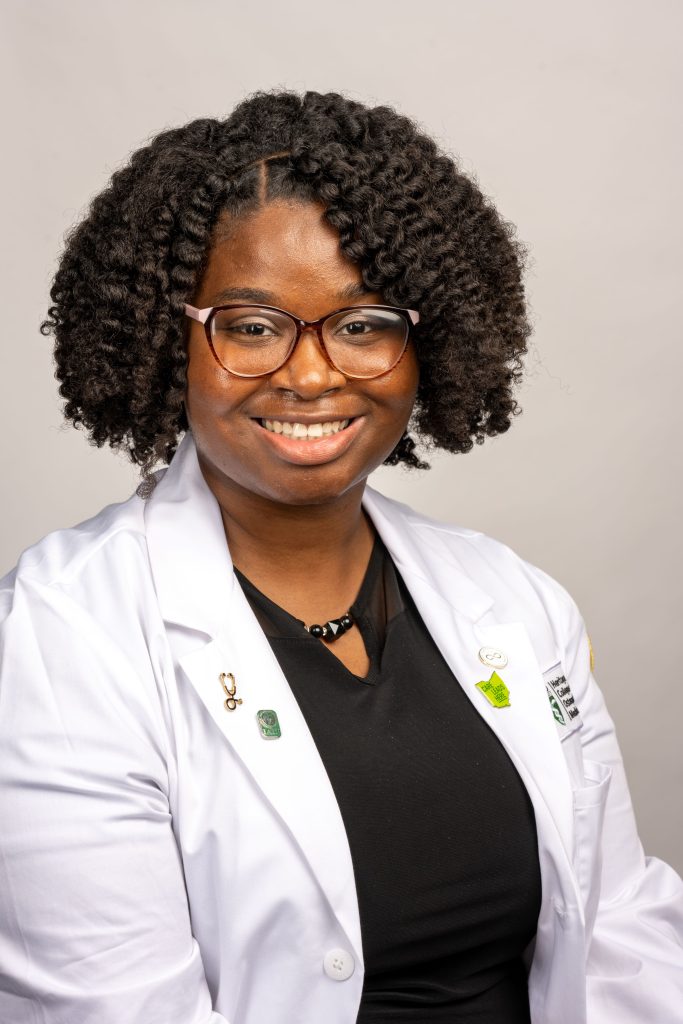
Willis-Norris – a first generation student – graduated from The Ohio State University in 2017 with a bachelor’s degree in biology and mathematics. A native Clevelander, she graduated high school from John Hay Early College in 2013. In her college years, navigating the financial process was difficult without a guiding hand, especially when it came to completing vital tasks such as filling out the FASFA and applying for financial aid. Although she had an incredibly supportive family, no one around her knew how to navigate the process. With the mentoring program and her College Now advisors in high school, she was able to talk to people who could set the stage of what to expect whether that be before college or during her undergraduate years. Now, she is currently in medical school at Ohio University Heritage College of Osteopathic Medicine with interests in cardiology or radiology studies.
Her continuation of wanting to help others not only through her career choice in the medical field, but also in a social diversity sense as well. As a woman of color in a STEM– related background, she uses her skills she developed while working with her College Now mentor and studying as an undergraduate to help advise her own mentees to make the best decisions for their life goals. This includes always asking for help and knowing the longevity of stepping out of your comfort zone. Today, STEM is becoming a more important role in leading industries, in addition to creating more diverse workspaces.
“Representation matters; when you have individuals in spaces it starts to create someone that you can see yourself being,” said Willis-Norris. Representation in apprenticeships and academic settings is something she is looking at herself as a mentor. More specifically, she contemplates how diversity affects students in classrooms today given that while she was a high school student, there was rarely any.
In relation to her own career in the medical field, she emphasized how anyone can provide good care, but there is an extra level of comfort for patients when their medical professional comes from a similar socioeconomic background or ethnicity. This idea is what she carries with her now as she navigates medical school – that diversity within the workforce can create an environment where patients from varying socioeconomic backgrounds can be treated with equity. Therefore, she uses this lesson to pass on to her own mentees.
With backgrounds in tech, business and medicine, Willis-Norris provides her mentees with a plethora of knowledge on numerous topics to study during their post–secondary education. When deciding to become a mentor, she stressed how with everything that she experienced with her own mentor, she wanted to give back to other students who are now going through the same obstacles that she faced. She has had three mentees through College Now who all needed different approaches to the mentoring process. Two of her mentees are from the Cleveland area, and a third being outside Cleveland, yet they have all come from remarkably similar experiences. They all had similar upbringings and did not have the support from those around them to understand the college admissions process.
Her strong background in taking different courses while an undergraduate prepared her for guiding her own students in making their own educational choices. The individualistic approach to mentoring allows her to be what each mentee needs, since each of them have different hopes for their own futures. What Willis-Norris enjoys the most about being a mentor is the constant uplifting support she gives to her students – which is what she also received during her time as a mentee.
As a mentee, the most beneficial tool provided to her was support through the College Now Mentoring Program. Unique’s College Now mentor offered her simple, yet resourceful information such as what to expect from college and was always there to support her when it came to academic and financial literacy obstacles. These topics seem so simple now to Unique, but without a mentor, she stressed how this practice can be difficult for students to understand. She now preaches the skills she acquired with her mentors and now onto her own mentees.
“The beauty of having a mentor is to have someone that has gone through what you’re going to go through and can grab you by the hand and pull you through,” Willis-Norris said. Being a mentor is purposeful, and there is a reason they are there. “Mentees will approach you if they need you; the goal is for them to be independent,” said Willis-Norris. She plans to continue her role as a mentor and advises other mentors to always create a warm and welcoming environment for their students.
Providing students with numerous avenues of study for her them to experience, Willis-Norris takes advantage of her role as a mentor to benefit her mentees. She stresses representation and independence in the workforce and mentoring programs alike. Being a mentee is one of the most resourceful experiences that a student can gain during their collegiate career. Offering support and acting as role models for the younger generation goes great lengths. It is vital to continue to support this form of mentoring that is offered at College Now to help assist the youth and the future of today.
